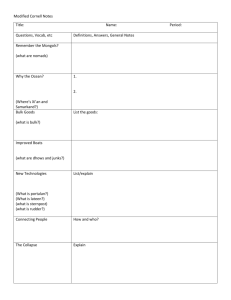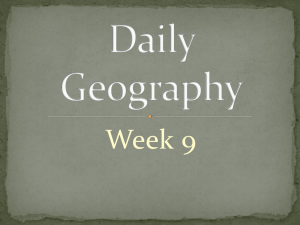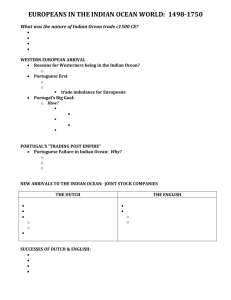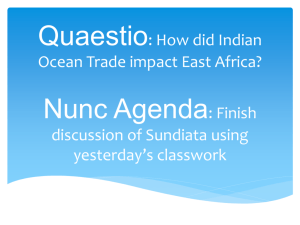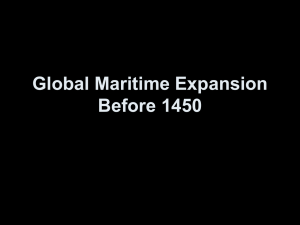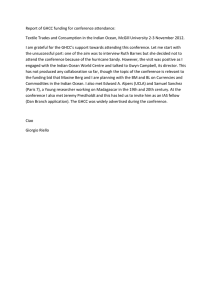A Strategically Vital Conversation, I Would Suggest!
advertisement
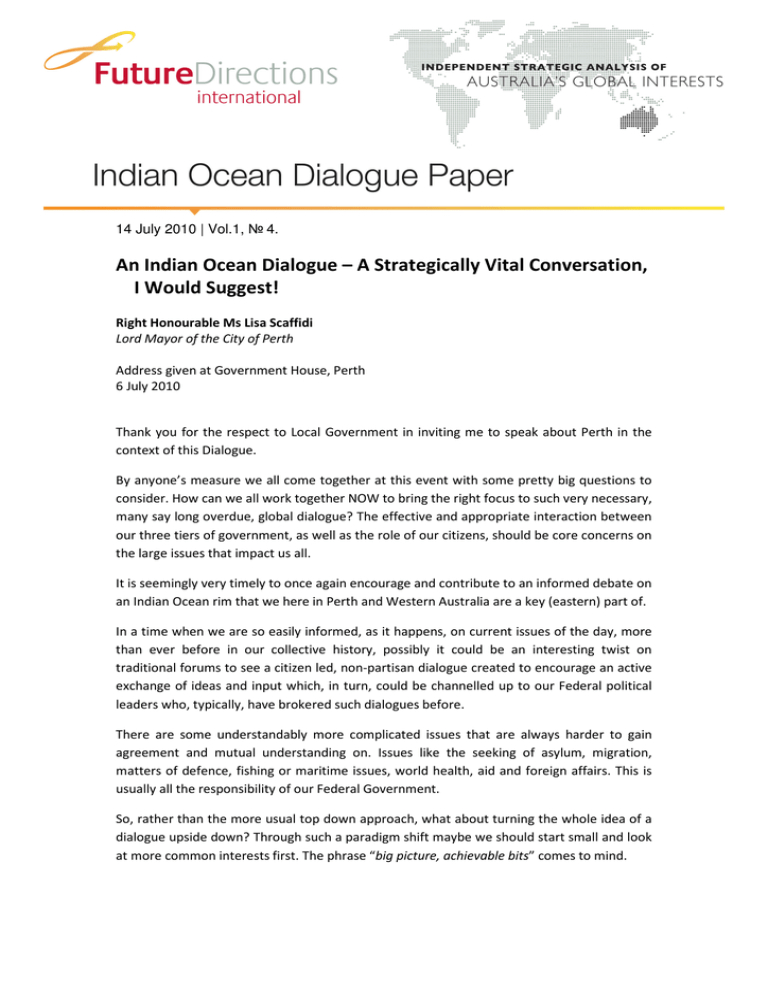
14 July 2010 | Vol.1, № 4. An Indian Ocean Dialogue – A Strategically Vital Conversation, I Would Suggest! Right Honourable Ms Lisa Scaffidi Lord Mayor of the City of Perth Address given at Government House, Perth 6 July 2010 Thank you for the respect to Local Government in inviting me to speak about Perth in the context of this Dialogue. By anyone’s measure we all come together at this event with some pretty big questions to consider. How can we all work together NOW to bring the right focus to such very necessary, many say long overdue, global dialogue? The effective and appropriate interaction between our three tiers of government, as well as the role of our citizens, should be core concerns on the large issues that impact us all. It is seemingly very timely to once again encourage and contribute to an informed debate on an Indian Ocean rim that we here in Perth and Western Australia are a key (eastern) part of. In a time when we are so easily informed, as it happens, on current issues of the day, more than ever before in our collective history, possibly it could be an interesting twist on traditional forums to see a citizen led, non-partisan dialogue created to encourage an active exchange of ideas and input which, in turn, could be channelled up to our Federal political leaders who, typically, have brokered such dialogues before. There are some understandably more complicated issues that are always harder to gain agreement and mutual understanding on. Issues like the seeking of asylum, migration, matters of defence, fishing or maritime issues, world health, aid and foreign affairs. This is usually all the responsibility of our Federal Government. So, rather than the more usual top down approach, what about turning the whole idea of a dialogue upside down? Through such a paradigm shift maybe we should start small and look at more common interests first. The phrase “big picture, achievable bits” comes to mind. If we consider the politics of oil and energy alone (a key driver for our state economy and this capital city right now), which are likely to have a powerful longer term impact on some of the trade and strategic dynamics of the Indian Ocean and, perhaps, in years to come won’t always necessarily be conducive to co-operation, we have a very good reason why my suggested approach should possibly be considered. We worked so well together post- the 2004 Boxing Day tsunamis and the impact they had on us; as a collective we have climate change creating a marked rise in sea levels and ocean temperatures. Ongoing CO2 emissions are causing acidification of our oceans and so this alone highlights the need for more joint and focused oceanic research. On the west coast of the United States there is an amazing oceanic and marine biology organisation, the Scripps Institution of Oceanography. Recently, the University of Western Australia has created a faculty focusing on this important area also, but maybe an entity similar to Scripps could be a fabulous way in which to see Australia begin a more definite engagement with this region. Through this research, undertaken in key Indian Ocean academic institutions, we could collaborate. Even in the area of health we have great medical institutions, researchers, Nobel prize winners and great scientists who could lead the way on a wide range of medical affiliations, just as we have seen happening between our sister city of Nanjing and Perth via the Nanjing Drum Tower Hospital and Royal Perth Hospital. On an urban front, as a safe, modern and clean capital city – and one of the world’s most liveable cities according to the Economist magazine, we can and have much to contribute on an urban policy level as, more than any time in man’s history, our cities are more and more the place where people live and they are lessening in numbers in the regions in many places globally. Did you know that post-World War II, US President Eisenhower came up with the idea for sister city relationships? This was a way in which, through citizen-to-citizen diplomacy, people could re-build many of the bridges that had been broken during the tension of war. Today, most Australian capital cities have up to 20 or more sister city affiliations. Often maligned as being unnecessary, a country like Australia can leverage great opportunity and trade for itself via connections with other global cities. But it need not be a one dimensional/self-interest serving relationship. On the right path, these relationships can be a real source of allegiance, alliance and action. Perth currently has ten of these relationships but sadly, none are within the Indian Ocean Rim. Interestingly, I have just been working with our international staff at the City on the finalisation of a new brochure for our website and, in my foreword, I made deliberate and specific reference to the fact that any future global partnerships should ideally be in Indonesia, India and the Middle East and, no doubt Africa, too. A comment made on the need to engage with world markets that are increasingly significant but they must be active and meaningful – not symbolic only. Page 2 of 3 We know – and we have heard already this morning – the Indian Ocean Region is a region of vast political cultural and economic diversity. We are broadly speaking of the peoples around Asia, Africa, and India. An area of our globe, our planet Earth, where probably more than 50 per cent of the world’s population lives and a place representing the greatest diversity of religions and races. A place of vastly different population levels and therefore too, economic development but, nevertheless, a region of irrefutable interdependence in what is, after all, “the global village”. A region containing very many cities of all sizes. So, maybe a city focus could be the most appropriate starting point for better collaboration in an ever shrinking and more globalised world? At first glance there are some 48 independent littoral and island countries in the Indian Ocean Region, as well as the stakeholders that include China, France, Japan, Russia, the EU and the US. Despite so many differences we can, believe it or not, also observe some amazing similarities. We all mostly have a tropical or temperate climate, our fair share of natural disasters, pretty impressive reserves of hydrocarbons and zones rich in fish. Much of the world’s trade crosses the Indian Ocean. I think it comes down to building collaborative frameworks and then stepping up to the bigger issues that will always take more time, if not generations, to interpret. Congratulations to FDI today. I have observed various attempts over the past years on this type of dialogue. I recall about 15 years ago, an International Forum on the Indian Ocean rim, which was held here in Perth, in June 1995. This discussion today is a small, but timely, kick start. In promoting co-operation, as Lord Mayor of the western gateway capital to our continent, indeed, our nation, I would hope to be a part of a dialogue that promotes strengthened relations through capacity building opportunities, collaboration and co-operation for all participants. From little things, bigger things can grow. Rather than calling for Indian Ocean rim dialogue, I think we need to rally a little more Indian Ocean rim enthusiasm and, hopefully, then some ripples of interest on the big Indian Ocean “pond” for all. Thank you. ***** Any opinions or views expressed in this paper are those of the individual speaker, unless stated to be those of Future Directions International. Published by Future Directions International Pty Ltd. Desborough House, Suite 2, 1161 Hay Street, West Perth WA 6005 Australia. Tel: +61 8 9486 1046 Fax: +61 8 9486 4000 E-mail: lluke@futuredirections.org.au Web: www.futuredirections.org.au Page 3 of 3
